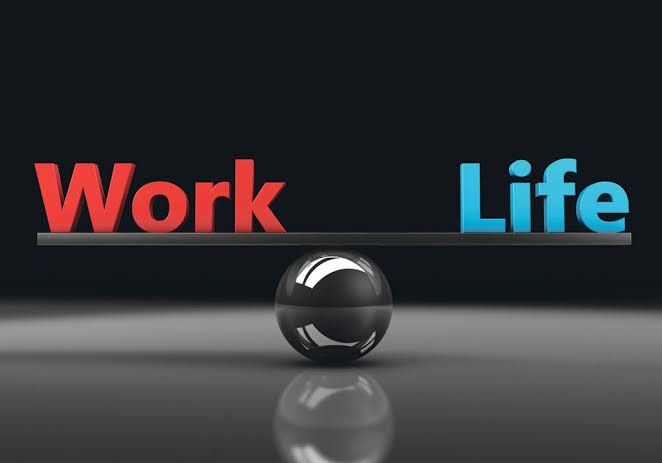Balancing the demands of work and personal life can often feel like walking a tightrope. With increasing responsibilities and the pressures of modern life, managing stress effectively and maintaining a harmonious work-life balance is essential for long-term health, productivity, and happiness.
Understanding Stress and Its Impact
Stress is a natural response to challenges, but chronic stress can negatively affect physical and mental health, leading to:
- Burnout: Fatigue and reduced efficiency.
- Health Issues: Increased risk of heart disease, headaches, and sleep problems.
- Mental Strain: Anxiety, irritability, and depression.
Steps to Manage Stress
a. Identify Stress Triggers
Recognize what causes your stress—deadlines, workload, or personal conflicts—and address them systematically.
b. Practice Time Management
- Prioritize tasks using techniques like the Eisenhower Matrix (urgent vs. important).
- Break larger projects into manageable steps.
- Delegate tasks when possible.
c. Adopt Relaxation Techniques
- Meditation: Helps calm the mind and increase focus.
- Breathing Exercises: Simple techniques like deep breathing can quickly reduce stress.
- Yoga: Combines physical movement and mindfulness for overall relaxation.
d. Maintain Physical Health
- Exercise regularly to release endorphins, the body’s natural stress relievers.
- Eat a balanced diet rich in nutrients that support brain health.
- Get enough sleep to recharge your mind and body.
e. Seek Support
- Talk to friends, family, or a counselor about your concerns.
- Join support groups or professional networks for shared experiences and advice.
Achieving Work-Life Balance
a. Set Boundaries
- Clearly define work hours and stick to them.
- Avoid checking emails or taking calls outside these hours unless absolutely necessary.
b. Prioritize Personal Time
- Spend quality time with loved ones.
- Pursue hobbies or interests that bring you joy.
c. Embrace Flexibility
- Negotiate flexible working hours or remote work options with your employer.
- Use technology to streamline tasks and save time.
d. Learn to Say No
- Avoid overcommitting by declining tasks or events that don’t align with your priorities.
e. Plan Regular Breaks
- Take short breaks during the day to refresh your mind.
- Schedule vacations or staycations to recharge.
Long-Term Strategies for Balance
a. Develop a Routine
Consistent daily routines can help reduce decision fatigue and provide structure.
b. Focus on Personal Growth
Invest time in learning, self-improvement, and building skills that enhance your career and personal life.
c. Cultivate Gratitude
Practicing gratitude can shift focus from stressors to positive aspects of life.
d. Reduce Perfectionism
Aim for progress, not perfection, and accept that some things can’t always go as planned.
When to Seek Professional Help
If stress becomes unmanageable or leads to severe anxiety, depression, or health issues, consult a therapist or counselor for personalized guidance.
Conclusion
Achieving work-life balance and managing stress is a continuous journey. By setting clear priorities, adopting relaxation techniques, and nurturing personal well-being, you can create a fulfilling life that balances professional success with personal happiness.
FAQs:
1. What are some quick ways to reduce stress during a busy workday?
- Practice deep breathing exercises.
- Take a short walk or stretch.
- Listen to calming music or meditate for a few minutes.
2. How can I balance work and family responsibilities?
- Set clear work hours and stick to them.
- Communicate with your employer and family about your schedule.
- Delegate tasks at home and work when possible.
3. Why is work-life balance important?
Maintaining balance helps prevent burnout, reduces stress, improves mental and physical health, and strengthens relationships.
4. How can I prioritize tasks effectively?
Use tools like the Eisenhower Matrix to categorize tasks as urgent, important, or less critical. Focus on completing high-priority tasks first.
5. What role does physical health play in stress management?
Regular exercise, a healthy diet, and adequate sleep boost energy levels, improve mood, and help your body manage stress better.
6. How can I disconnect from work after office hours?
- Turn off work notifications on your phone.
- Establish a “shutdown” ritual like journaling or reading.
- Create a dedicated workspace separate from relaxation areas at home.
7. Is multitasking an effective way to manage work-life balance?
No, multitasking can reduce efficiency and increase stress. Focus on one task at a time for better results.
8. How can hobbies help with stress management?
Hobbies provide a creative outlet, reduce anxiety, and offer a sense of accomplishment, helping you unwind and recharge.
9. What should I do if my job demands make work-life balance impossible?
Discuss your concerns with your employer. Explore options like flexible hours, workload adjustments, or additional resources.
10. How do I manage stress if I can’t take time off from work?
Incorporate small stress-relief practices like mindful breathing, taking breaks, or talking to a supportive colleague into your day.




